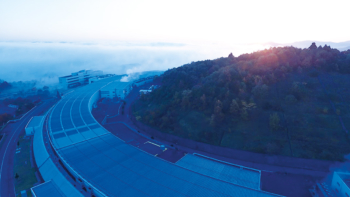 Read article 'Polarized photocathodes make the grade'
Read article 'Polarized photocathodes make the grade'
Polarized photocathodes make the grade
Future linear colliders will require high levels of performance from their electron sources. A group at SLAC has recently tested a structure that substantially exceeds current collider polarized elect...











